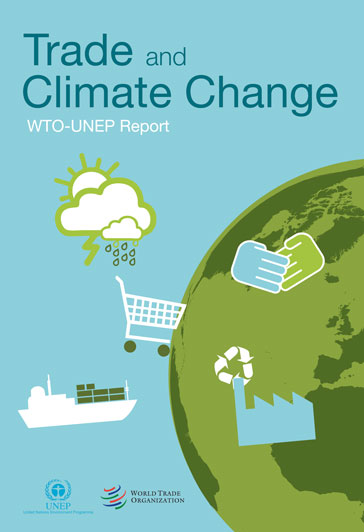- home
- trade topics
- trade and environment
- climate change
The multilateral trading system and climate change: introduction
Note: This webpage is prepared by the Secretariat under its own responsibility and is intended only to provide a general explanation of the subject matter it addresses. It is in no way intended to provide legal guidance with respect to, or an authoritative legal interpretation of, the provisions of any WTO agreement. Moreover, nothing in this note affects, nor is intended to affect, WTO members' rights and obligations in any way.
Climate change is the biggest sustainable development challenge the
international community has had to tackle to date. Measures to address
climate change need to be fully compatible with the international
community's wider ambitions for economic growth and human advancement.
It is a challenge that transcends borders and requires solutions not
only at national levels but at the international level as well.
The WTO is one part of the architecture of multilateral cooperation. It
provides a framework of disciplines to facilitate global trade and
serves as a forum to negotiate further trade openness. Freer trade is
not an end in itself; it is tied to crucially important human values and
welfare goals captured in the WTO's founding charter, the Marrakesh
Agreement. Among these goals are raising standards of living, optimal
use of the world's resources in accordance with the objective of
sustainable development, and protection and preservation of the
environment.
The issue of climate change, per se, is not part of the WTO's ongoing
work programme and there are no WTO rules specific to climate change.
However, the WTO is relevant because climate change measures and
policies intersect with international trade in a number of different
ways.
First, trade openness can help efforts to mitigate and adapt to climate
change, for example by promoting an efficient allocation of the world's
resources (including natural resources), raising standards of living
(and hence the demand for better environmental quality) and improving
access to environmental goods and services.
Second, the WTO is relevant because national measures to mitigate and
adapt to climate change may have an impact on international trade (as
they may modify conditions of competition) and may be subject to WTO
rules. The WTO 搕ool box?of rules can be relevant, therefore, to the
examination of climate change measures. Moreover, WTO rules, as a whole,
offer a framework for ensuring predictability, transparency and the fair
implementation of such measures.
